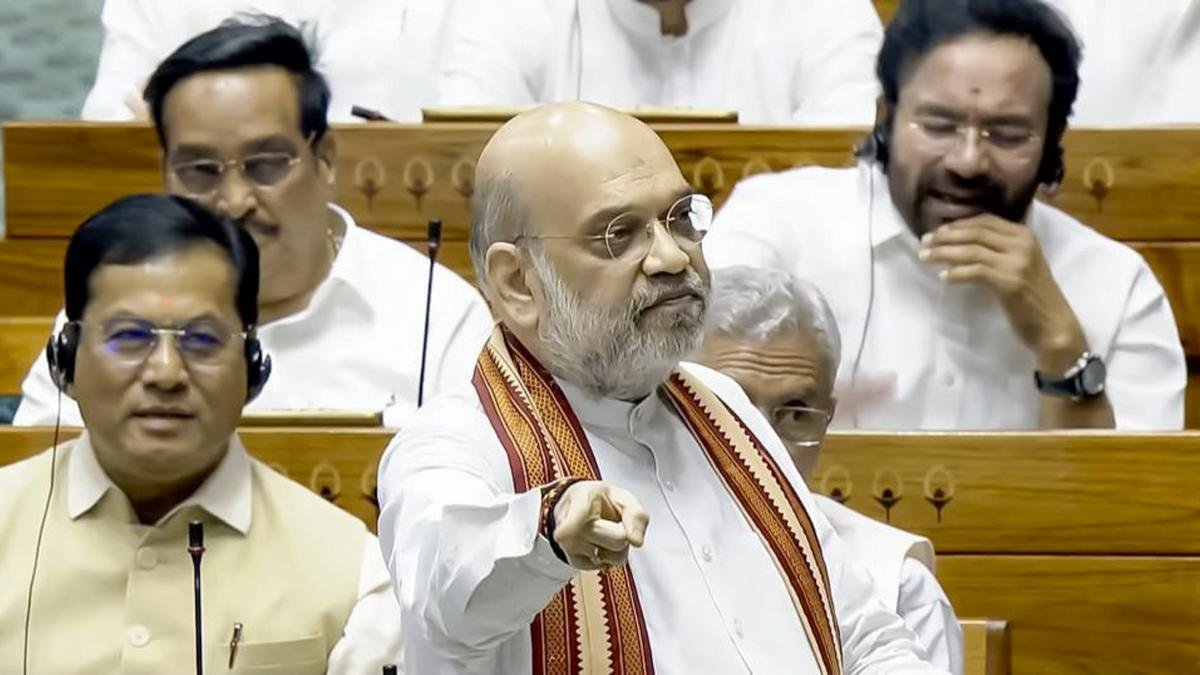Amit Shah’s Bills Propose 30-Day Detention Rule for PM, CMs, Ministers 📰
A Bold Legislative Move 🚨
Union Home Minister Amit Shah is set to introduce three interconnected bills that could reshape India’s executive accountability landscape. These bills mandate the removal of a sitting Prime Minister, Chief Ministers, or ministers at the Centre, states, or Union Territories if detained for 30 consecutive days on serious criminal charges carrying a potential sentence of five years or more. Removal would take effect on the 31st day of custody, with the possibility of reappointment upon release. This initiative, comprising the Constitution (130th Amendment) Bill, the Government of Union Territories (Amendment) Bill, and the Jammu & Kashmir Reorganisation (Amendment) Bill, aims to close a legal gap where no explicit rule prevents detained leaders from holding office during prolonged pre-trial custody. 🗳️
How the 30-Day Rule Works ⚖️
The proposed framework establishes a clear rule: any PM, CM, or minister detained for 30 consecutive days on charges punishable by five years or more will be removed from office on day 31. The bills allow reappointment after release, balancing the presumption of innocence with the need for uninterrupted governance. A new Article 75(5A) would empower the President to remove Union ministers on the PM’s advice, with similar provisions for states and Union Territories. The Jammu & Kashmir amendment aligns the region’s framework with this standard. 📜
Key Features Table
| Element | Proposed Rule | Applies To |
|---|---|---|
| Custody Threshold | 30 consecutive days | PM, CMs, Union/state/UT ministers |
| Offence Class | Punishable with ≥5 years | Alleged serious criminal charges |
| Removal Timing | Automatic by day 31 | President/Governor/LG as applicable |
| Reappointment | Permitted after release | Subject to standard appointment advice |
Why Now? The Context 🕵️♂️
Recent cases, such as former Delhi Chief Minister Arvind Kejriwal and Tamil Nadu minister V. Senthil Balaji continuing in or near office despite prolonged detention, exposed a lack of clear rules. These situations led to legal and political disputes over governance continuity and propriety. The bills aim to codify a once-informal convention into law, ensuring no executive officeholder remains in power during extended pre-trial custody, thus preventing administrative paralysis. The 30-day threshold offers a standardized approach, distinct from the conviction-based disqualification under the Representation of the People Act (RPA). 📅
Timeline of the Proposed Rule
Day 1: Arrest on serious charges (≥5 years). Custody begins. ⏰
Day 30: Continuous detention triggers evaluation. 📝
Day 31: Automatic removal from office. 🛑
Post-Release: Reappointment possible upon release. ✅
Political and Legal Stakes 🎯
The bills have sparked intense debate. The government frames them as anti-corruption measures to uphold constitutional morality and public trust during serious prosecutions. However, the Opposition warns of potential misuse by central agencies to destabilize non-BJP governments through targeted arrests. The bills’ referral to a joint parliamentary committee signals a rigorous debate over definitions, due process, and federal balance. Legal experts note that tying removal to custody rather than conviction prioritizes governance stability but must align with judicial oversight and the presumption of innocence. 🏛️
Support vs. Opposition
Supporters Say: Enhances accountability, prevents governance paralysis, and sets a uniform standard. 👍
Critics Argue: Risks political misuse, undermines due process, and threatens federal balance. 👎
What’s Next? 🛤️
If passed, these bills would mark a significant shift in India’s executive accountability framework, standardizing a 30-day detention rule across the Union, states, Union Territories, and Jammu & Kashmir. They aim to end ambiguity around detained leaders, reset political incentives during investigations, and ensure governance continuity. However, constitutional challenges and federal tensions are likely, given the Opposition’s concerns. The joint committee’s scrutiny will be crucial in refining the bills’ safeguards and implementation. 📋
Frequently Asked Questions ❓
What is the core idea behind these bills?
The bills mandate the removal of a PM, CMs, or ministers after 30 consecutive days in custody on serious charges (≥5 years), with reappointment allowed post-release. 🗳️
Do the bills apply to all levels of government?
Yes, they cover the Union, states, Union Territories, and Jammu & Kashmir via three coordinated amendments. 🏛️
What qualifies as “serious criminal charges”?
Offences punishable by five years or more under any law trigger the 30-day custody rule. ⚖️
When does removal occur?
Removal happens automatically on the 31st day after 30 continuous days in custody. ⏰
Can removed leaders be reappointed?
Yes, reappointment is permitted upon release, respecting due process. ✅
Why introduce this rule now?
Recent cases of detained leaders continuing in office highlighted a legal gap, prompting this codification. 📅
Will these bills face scrutiny?
Yes, they will be referred to a joint parliamentary committee for detailed examination. 📋
